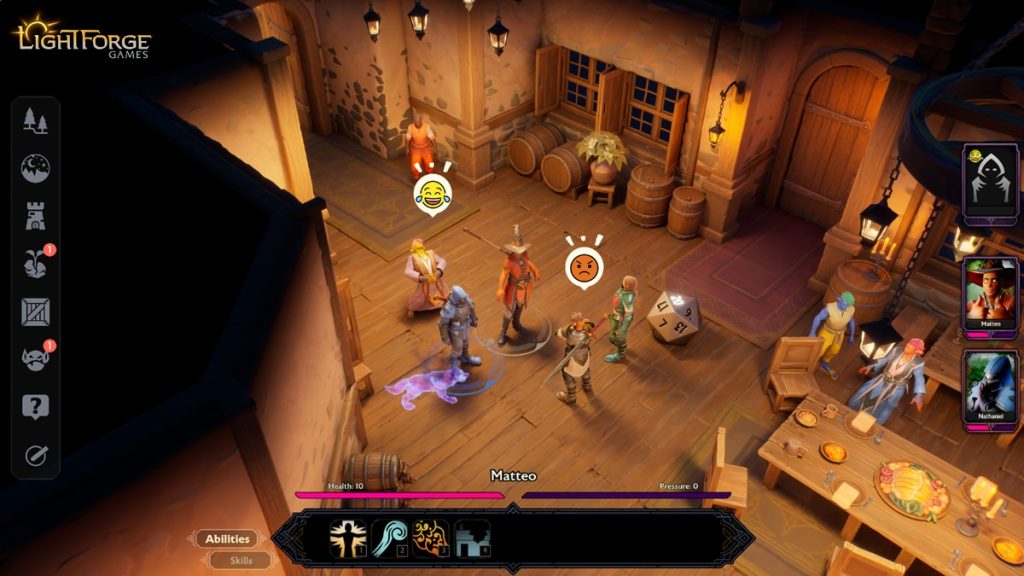Lightforge Games, a studio formed by industry veterans from Epic Games and Blizzard, announced the development of Project O.R.C.S., an online role-playing game with collaborative storytelling.
With aspirations to redefine the RPG landscape, Project O.R.C.S. introduces a unique Collaborative Storytelling RPG (CSRPG) genre, encouraging players to craft their tabletop-like experiences in fully realized scenes, the company said.
In a demo, a team of players goes through a fantasy world, viewing the action from a third-person view. But one of those players is the dungeon master, who can control the non-player characters (NPCs) in the scene. The human dungeon master, or guide in the game, can respond to the player actions with new orders for the NPCs. And the human guide can also drop hits for the human players on what to do, said Lightforge Games CEO, Matt Schembari, in an interview with GamesBeat.
“We always knew that the mission was always to bring the magic of tabletop RPGs to a mainstream videogame audience,” he said. “That’s something that has been a holy grail in my own head as a game developer for like the last 10 years. I’ve been thinking about this project one way or the other. And I knew from the beginning, that we didn’t want to make a virtual tabletop game.”
GB Event
GamesBeat Summit Call for Speakers
We’re thrilled to open our call for speakers to our flagship event, GamesBeat Summit 2024 hosted in Los Angeles, where we will explore the theme of “Resilience and Adaption”.
Apply to speak here
The party of adventurers controls their own characters, and they go off on quests. You throw the dice and react to the results of it. That’s the core gameplay. There’s a roguelike structure to the game, which has a hub called the Safehold. That’s where you can find members of your guild.
This might be 30 or 40 people, and your guild builds up the town based on core progression. Things happen that can be threats or opportunities for the town, and then players go out on quests in their small parties. You don’t have to go out on the quest with the same people every time. You can rotate among your guild members. That takes care of the human availability problem.
“We want people to be able to come home from school or work, log in, find some people to play with, and form a new party,” Schemari said.


